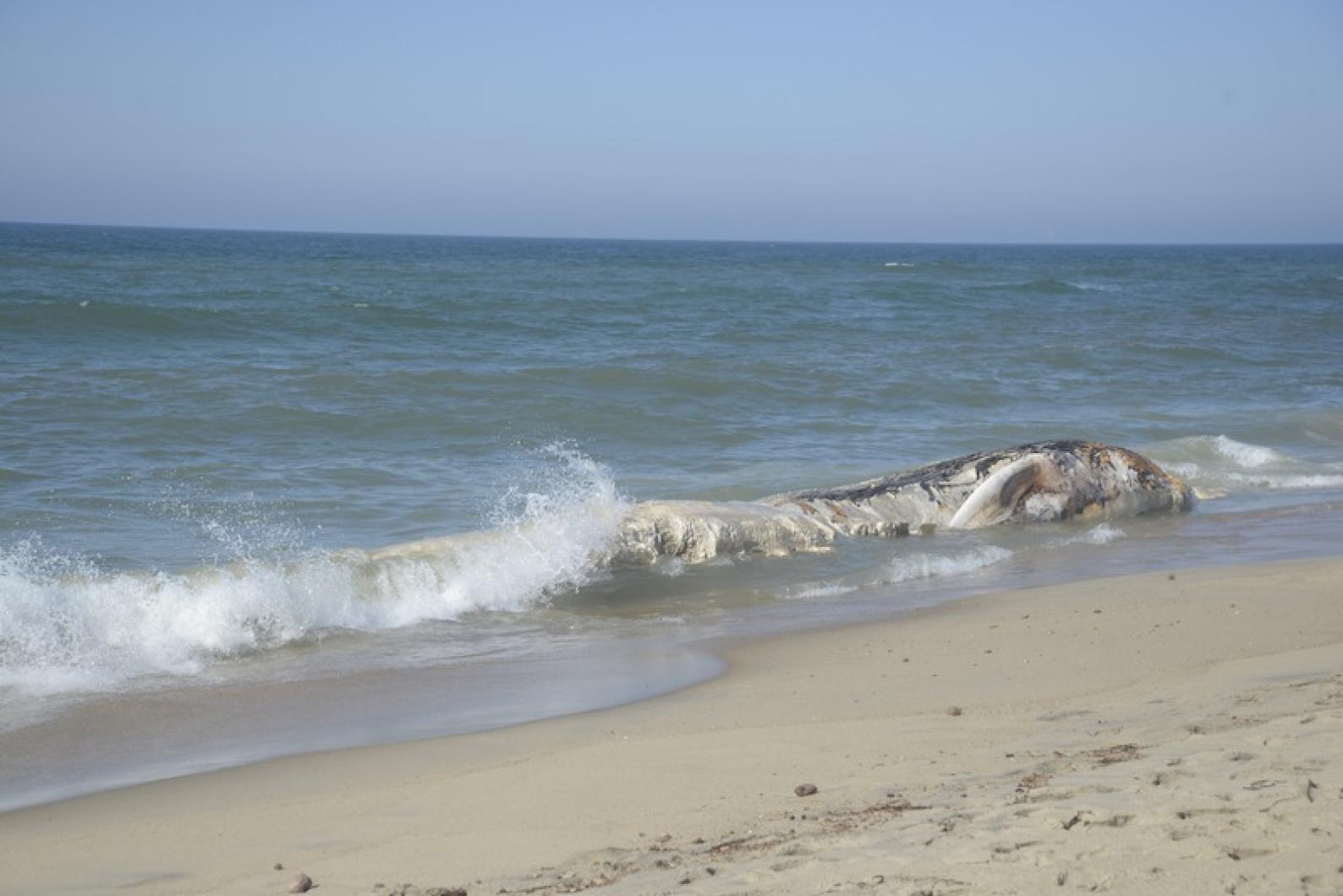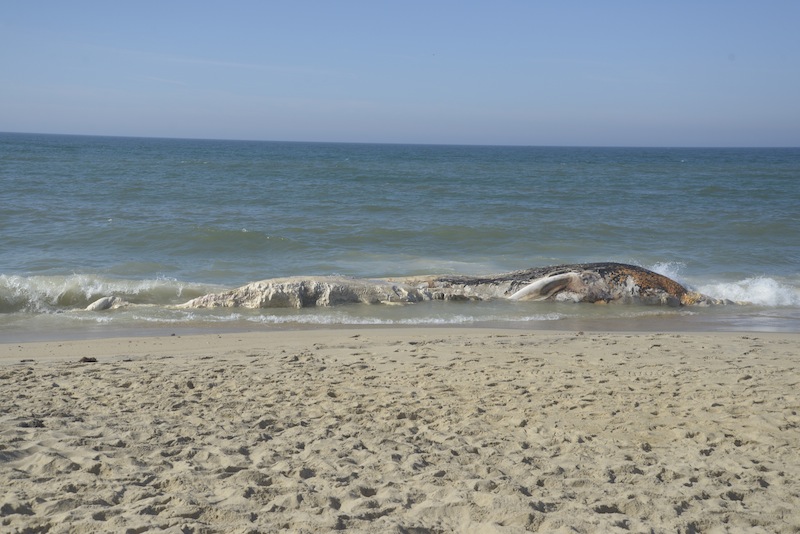Norton Point will be closed to swimmers and vehicle traffic Wednesday to accommodate efforts to remove a dead fin whale.
The manner of removal is to be determined, and the Edgartown board of health is testing the water to determine whether the whale has affected water quality.
The large, badly decomposed whale washed up in the surf at South Beach on Monday morning as Fourth of July beach-goers started to arrive for one of the busiest days of the year. Edgartown officials cordoned off a section of beach surrounding the whale and warned visitors that the whale could pose a public health hazard or attract sharks.
By Tuesday the whale had migrated about 200 yards eastward to Norton Point, the barrier beach managed by The Trustees of Reservations. The organization’s Vineyard superintendent Chris Kennedy said Tuesday evening that the whale has broken into two sections, which complicates removal efforts.
There was an attempt Tuesday to tow the whale away, but the seas were rough and fog descended just as the boat was in position, he said.
On Wednesday, The Trustees and town officials will meet and discuss how to proceed. “We may very well end up having to pull it out of the surf and bury it,” Mr. Kennedy said. Heavy equipment contractors will be on hand, and the town has spoken with fishermen about using their boats if the whale can be towed to sea. Harbor master Charlie Blair is overseeing that effort, Mr. Kennedy said.
The removal project combined with public health concerns brought about the beach closure Wednesday, he said. The board of health has voiced concerns that the dead whale is a public health hazard and took water samples in the area on Tuesday.
“And if we do have to pull it out of the surf and dig a burial pit for it, it would be virtually impossible if people are setting up all around with beach blankets and such,” Mr. Kennedy said.
New England Aquarium spokesman Tony LaCasse said that public health is a main concern. “It’s prudent to be careful around that,” he said, adding that the whale could have “a host of bacteria” and it is wise to be cautious.
Felix Neck Wildlife Sanctuary director Suzan Bellincampi echoed that caution, saying people and their dogs should steer clear of the whale to avoid zoonotic diseases (diseases that can spread between animals and humans).
The whale was identified Tuesday as a fin whale that had previously been seen floating off the coast a few weeks ago, NOAA Fisheries spokesman Jennifer Goebel told the Gazette Tuesday. She said NOAA had not received official photos of the whale and had no further information about where the whale had been seen before, its age or sex, or manner of death. A necropsy will not be done because the whale is too decomposed, she said.
Fin whales, also called finback or razorback whales, are commonly found in New England waters, where they feed on krill, schooling fishes, and squid. They are the second largest whale species and can grow to be 80 feet long and weigh up to 80 tons. They can live to be 90 years old.
The species is listed as endangered at the state and federal level, and threats to fin whales include collisions with vessels, habitat degradation, entanglement in fishing gear, reduced prey abundance, and disturbance from low-frequency noise, according to NOAA.
Ms. Goebel said that when whales are beached or too decomposed to be towed further out to sea they are sometimes taken to landfills. In the case of a humpback whale that stranded a few weeks ago in Rye, N.H., the meat was taken off the whale and taken to a composting facility to be used as gardening compost.
The town of Edgartown and Trustees are operating a Norton Point beach information line at 774-310-1110, which is updated with beach opening and closing information.









Comments (15)
Comments
Comment policy »